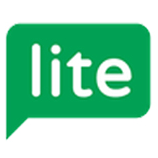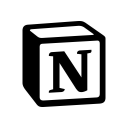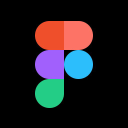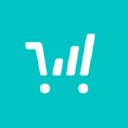How My Solo Notion Business Makes $20K Per Month
Hello! Who are you and what business did you start?
Hi! I'm Modest Mitkus, the founder of Pathpages.
My journey started in 2021. I was curious about the idea of selling digital products and making money online without selling my time.
The first months were rough, but the feeling of getting sales notifications while sleeping hooked me in. Pathpages was born.
Ever since I have helped over 120,000 people get organized and productive with Notion. Every week, Pathpages's newsletter is read by 100,000 people. I also have a lovely community of almost 200,000 productivity-seekers across different Pathpages social media channels.
My mission is simple: to simplify lives by proving that one tool, like Notion, can truly change everything.
Over the past few years, I have generated over $300,000 by working as a team of one.
I love sharing everything about building and growing a digital product business even more. Thousands of people love and admire that kind of content from me too.
What's your backstory and how did you come up with the idea?
Since I was young, I was always searching for ways to make some extra cash - as I do not come from a rich family, so I soon realized that I had to build my future on my own.
My first business was an e-commerce brand. I needed a website for it and I didn’t have much money to invest, so I built one on my own.
I made some extra cash, but that was it.
Later, I learned that you can make a solid amount of money by building websites for others. So that’s what I did. I had little knowledge about the business, working with clients, or website design & building, but I decided to learn on the go.
My journey with Notion started when I was working in my UX design studio. I used it as a tool to manage my projects and tasks, and I just loved how uncomplicated and flexible it was.
At that time, I was at the top of my career - winning one of the biggest clients in my country, receiving awards, earning six figures, being my own boss, etc.
Living the dream, some would say. Except, I wasn't.
I was feeling burnt out from working with clients. I hated everything - daily calls, following others' directions, having no work freedom, and making other people profit with little pay or recognition.
In other words, I felt desperate. I knew that there were only two options for me - suck it up and continue working for others, as everyone does, or quit everything, use my savings, and try for the following year. So I did.
At the time, Notion templates were less popular, but there were already people selling them. I was already familiar with Notion, and the idea of selling digital products felt tempting. So I gave it a try.
Take us through the process of building the product.
The first Notion template I created was the Notion E-Commerce Kit.

I was familiar with working with e-commerce brands and their needs while managing a business. Additionally, I had been using Notion to manage my own business for about a year or two (and received compliments on my system from clients who saw it).
It took me around a week or two to create my first template and another week to prepare it for selling. This involved filling it with examples, creating product mockups, writing product descriptions, etc.
Then, the fun part of trying to get as many eyes as possible began because I soon realized that building a product is just the first of many steps if you want to make an actual living from it.
Describe the process of launching the business.
I didn't create my own Pathpages brand or website right away.
My first sales came from Gumroad and other Notion template marketplaces. I also shared the links on Facebook groups, Reddit, etc. The idea was to test the waters - to see if it's possible to make even a dollar from it.
I tried to advertise my template the way other people were doing it at that moment. I wrote a short description of my template, added visuals, and invited them to check out the template on my Gumroad product page by adding a link to the post.
My first sale notification came after a day or two. That's when I decided that I wanted to double down. Creating products I want and like, without having to report to someone, sounded like a dream to me. It was so refreshing after a few years of constant work finding/working with clients.
At first, I focused on sharing my templates on different sites, and only after a few months did I realize I wanted to have my own thing - my own brand, my traffic, my subscribers, and my followers.
I wanted to make the most out of my future product launches without having to depend on somebody else.
A big audience requires a lot of time to create content. A successful digital product takes time to build. A brand takes time to become recognizable and trustworthy by others.
Since launch, what has worked to attract and retain customers?
Over the past few years, I've mainly focused on building organic traffic to my website.
I've never used paid ads for Pathpages. Instead, I took the harder/longer way and decided to find my customers organically on different social media channels like TikTok, Pinterest, Instagram, Twitter, and YouTube.
I did everything as with my previous businesses - tried new things that were working for others (for example, posting Reels on Instagram instead of regular posts) and improved on the go. My strategies were changing in the process, trying to double down on things that worked. I have also written blogs and been building email subscriber lists along the way.
I believe that in the digital product business, diversifying your traffic sources is key. So I try to be everywhere at once. Sure, it's tough in the beginning, but with time, you accumulate followers, Google rankings, newsletter subscribers, and testimonials. Even if a 170k-follower social media account gets blocked (which happened to me!), it doesn’t crush you.
However, I must say that only traffic will not make you rich - the quality of the product, the size of the problem that it solves, and the number of people experiencing that problem make a huge difference.
Pathpages is a productivity and organization brand that solves common problems. When building products, I focus on these 3 key factors: the design of the template, how easy it is to use, and the system itself. I always strive to make every part of the template as efficient as possible.
Pathpages's systems have already won 8 awards and have been chosen as the best choice for productivity. Notion Second Brain achieved 1st place on "Product of the Day" and 4th place on "Product of the Month" in the ProductHunt productivity category.

Over the years, all my work has compounded - Pathpages has become a recognizable Notion templates brand - and that surely helps.
How are you doing today and what does the future look like?
At the moment, Pathpages is making me around $30k/month without me spending too much time on it. It has become a recognizable brand, with a constant flow of traffic and an active email sequence.
Those who have been following me on my personal X/Twitter and LinkedIn accounts for the past few years know that you can find my entire journey there. There are posts where I was earning only $300/month, $1000/month.
Also, posts where I'm sharing new tools or platforms that I decided to use and why. Lessons that I've learned on the go. Frameworks on choosing a niche, building an audience, or successful digital products that I use on my own. And even more.
I've been sharing it all there and realized that as much as I love productivity and organization topics, I love sharing everything about building and growing a digital product business even more. Thousands of people love and admire that kind of content from me too.
That's why at the end of last year, I launched "Create Once, Sell Forever," a 5-hour video course where I show my framework on how to build a $35k/month digital product business from scratch. In the first 72 hours, more than 200 people joined.
I don't have exact plans for Pathpages at the moment, but I know that I want to continue sharing the business side on my personal account Modest Mitkus, and inspire more people to stop selling their time.
Through starting the business, have you learned anything particularly helpful or advantageous?
- Work smart, not hard.
Working harder doesn't guarantee a 100% chance of achieving better results. Find smarter ways to improve your outcomes.
For example, instead of creating unique content for each social media platform, I try to find a way to repurpose it. I create short videos for Instagram Reels but also post them on TikTok, YouTube Shorts, and Pinterest.
- Learn and execute at the same time.
You don't need to learn something before starting. I didn’t know much about digital products and how to create and sell them when I started. But I decided to give it a go in my free time and see how it goes. When I saw that there were possibilities, I doubled down and learned much more along the way.
- Take more risks.
Taking more risks can open up more opportunities that you never thought were possible. When I started Pathpages, I was making six figures per month. But I felt empty inside because I felt like a slave to my clients. I didn't enjoy having daily calls at all. So I quit; now my income has quintupled, and I have the work freedom that I craved.
- Money is not the main goal.
Don't focus only on money; find greater meaning and purpose. This way, you will go further.
What keeps me up on my journey is that I genuinely enjoy building businesses. Every obstacle I face, I see it as a challenge. Life doesn’t feel boring at all.
- You know nothing.
Don't try to be the smartest in the room; don't lock yourself into the state that you know everything - this will only stop your growth.
I noticed that the biggest growth comes when you go outside your comfort zone and try something new. For example, posting a new type of content that is already working for others or implementing a new pricing strategy.
- Learn to reset.
When it's time to work, work. When it's time to rest, rest.
Even if you feel like you can work forever, try to find ways to reset. This way, you will avoid burnout. Currently, I'm trying to work 8 hours per day and then rest. It might sound boring, but that's how you get things done.
- There's always a price.
Nothing comes without a price. All the luck you see online most of the time has a price. And many big creators tend to be quiet about it.
A big audience requires a lot of time to create content. A successful digital product takes time to build. A brand takes time to become recognizable and trustworthy by others.
That’s why, many who try and don’t succeed tend to think that the whole internet business thing is a scam. It isn’t. But it takes determination, energy, and time. There’s no overnight success. At least 99% of the time. And results, well, they are well worthy.
What platform/tools do you use for your business?
I use this tool to create landing pages for all of my businesses.
You can create custom websites on a completely visual canvas with no code.
Figma is my design tool of choice. It's free and packed with all the features I need.
It helps me to design anything: websites, applications, logos, and much more.
I use this tool to host all of my digital products.
It also has checkout and course hosting capabilities, which makes it the best investment in my entire collection of tools so far.
The ultimate tool for managing anything.
I use this tool to track my business finances, plan, and write content, and much more.
This is the tool that helps me schedule social media content.
From tweets to threads, I can have good writing and scheduling experience and also learn from their analytics.
I use this tool to send emails to my subscribers.
It's by far the best option to get a lot of value for a reasonable price (if we look at the current email tool market).
The only AI tool that I use.
It helps me by generating ideas and guiding me when I'm stuck on something in business.
What have been the most influential books, podcasts, or other resources?
In my opinion, there is no bad book; there is only bad timing.
When you have a specific problem, try to find a book that can solve it.
This way, once you start reading whatever book you choose, it will be very interesting and beneficial.
Advice for other entrepreneurs who want to get started or are just starting out?
If you want to stop selling your time and create a digital product business yourself, my best advice would be to simply “f–k around and find out”:
- Take the first step.
- Publish the first post.
- Create the first product.
- Action breeds momentum.
- Momentum breeds results.
You will never know what results you can get if you never try. So start getting clarity by taking some action.
The most likely scenario - things will work out on the way. Worst-case scenario - you will learn a lot. No way to lose on this.
Where can we go to learn more?

Download the report and join our email newsletter packed with business ideas and money-making opportunities, backed by real-life case studies.

Download the report and join our email newsletter packed with business ideas and money-making opportunities, backed by real-life case studies.

Download the report and join our email newsletter packed with business ideas and money-making opportunities, backed by real-life case studies.

Download the report and join our email newsletter packed with business ideas and money-making opportunities, backed by real-life case studies.

Download the report and join our email newsletter packed with business ideas and money-making opportunities, backed by real-life case studies.

Download the report and join our email newsletter packed with business ideas and money-making opportunities, backed by real-life case studies.

Download the report and join our email newsletter packed with business ideas and money-making opportunities, backed by real-life case studies.

Download the report and join our email newsletter packed with business ideas and money-making opportunities, backed by real-life case studies.








